Whether you’re planning a wedding, creating a heartfelt gift, or simply curating a beautiful floral arrangement for your home, understanding how many flowers go into a bouquet is key to achieving the perfect balance.
This guide dives into the art of flower arrangements, offering practical tips for floral enthusiasts, emphasizing the significance of all the flowers in a bouquet. From weddings to garden gatherings, you’ll learn how to design stunning bouquets that match any occasion.
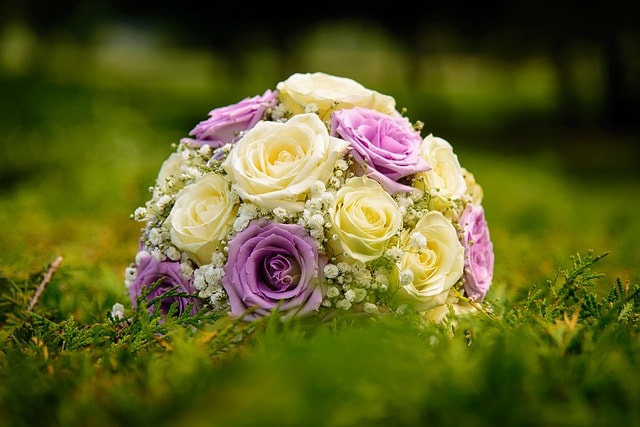
Understanding Your Flower Needs
Before you start selecting flowers, it’s important to define your purpose. The type and number of flowers in a bouquet can vary greatly depending on the occasion, preferences, and style.
Determine the Occasion
The event you’re designing for sets the tone for your bouquet. Weddings, anniversaries, funerals, birthdays, and holidays may each call for different styles, sizes, and quantities of flowers. Bridesmaid bouquets typically need between 10 to 15 stems, highlighting the importance of understanding the specific floral needs based on the arrangements and wedding party size. A bridal bouquet likely requires more flowers compared to a small centerpiece at an informal dinner party.
Consider the Recipient
Whether it’s a gift or part of an event, think about the preferences of the recipient or the purpose of the bouquet. Do they have a favorite flower? Are they drawn to bold, elaborate arrangements, or do they appreciate minimalist clean lines with fewer stems?
Align with the Style and Size
The size and style of the bouquet will also play a big role in determining the number of flowers. You can create elaborate arrangements by varying the type and quantity of blooms, ensuring a fuller look and catering to personal preferences. Smaller bouquets, like corsages or posies, require fewer blooms, while larger, more elaborate styles will feature many flowers layered with greens and accents.
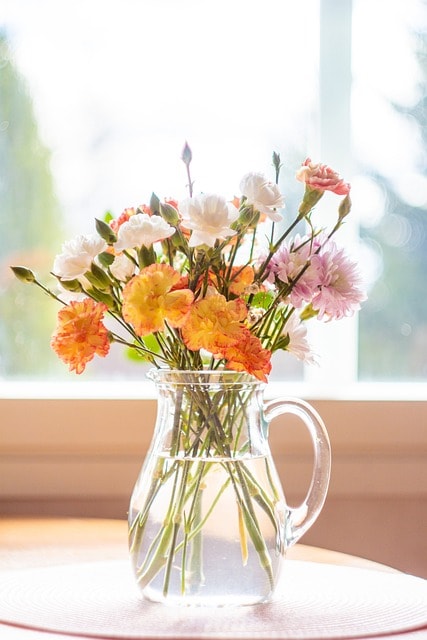
Calculating Flower Quantities for Weddings
Weddings offer the perfect opportunity to showcase creative floral designs, but calculating the right number of flowers for your arrangements can feel challenging. Understanding the quantity and types of flowers needed for your wedding bouquet is crucial to achieving the desired aesthetic. Here’s how to plan for your wedding flowers:
Assess the Wedding Party Needs
-
Bridal Bouquets: A bridal bouquet typically has 25–30 stems, including focal flowers, secondary flowers, accent flowers, filler flowers, and greenery. Larger blooms like peonies reduce the number of stems needed, while smaller blooms like baby’s breath might require more flowers.
-
Bridesmaids Bouquets: Expect to use 12–15 stems for each bridesmaid’s bouquet. These should complement the bride’s bouquet but often feature fewer stems for a simpler look.
-
Corsages and Boutonnieres: Plan for 1–3 stems per piece, depending on whether you use smaller blooms or focal flowers.
Factor in Centerpieces and Decor
The types of flowers and centerpiece size can greatly vary. A small centerpiece may need 5–7 stems, while a larger arrangement for an elaborate wedding table could require 15+ stems. Use greenery to add volume where needed.
Work with a Professional
Consulting a wedding floral specialist can save you time and energy. A florist with experience designing wedding arrangements can help you match flowers to your wedding theme and determine the exact number of flowers you need for your venue size.
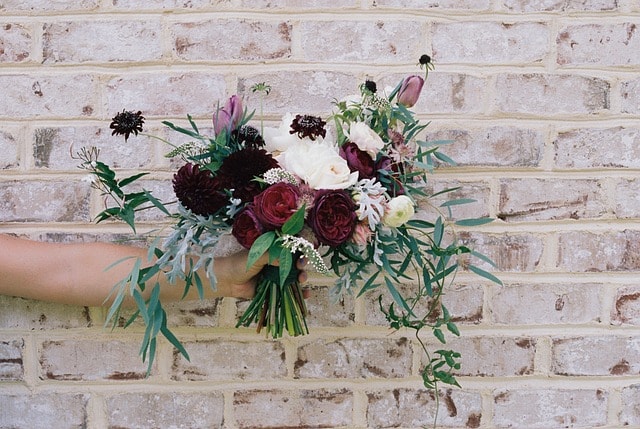
Choosing the Right Flowers
Careful flower selection makes all the difference in bringing together a beautiful bouquet. Here’s a breakdown to guide your choices:
Match the Theme
-
Wedding Themes: Align flowers with your wedding theme or color palette. Roses are perfect for romantic settings, while wildflowers offer a natural, bohemian vibe.
-
Occasions: A dozen roses symbolize love and gratitude, while hydrangeas and peonies are great for more formal arrangements.
Balance Bloom Size
Larger blooms like hydrangeas and peonies create a significant visual impact, meaning you’ll need fewer stems for full arrangements. Smaller flowers like roses or ranunculus, on the other hand, require more stems to fill bouquets or centerpieces.
Include Focal and Secondary Flowers
For the best results, combine:
-
Focal Flowers: Larger, attention-grabbing blooms like dahlias or garden roses.
-
Secondary Flowers: Mid-sized flowers like carnations or lisianthus to fill in arrangements.
-
Filler Flowers: Use accents like baby’s breath, which adds texture and volume without overwhelming the bouquet.
-
Greenery: Choose greens like eucalyptus or ferns to add depth and clean lines.
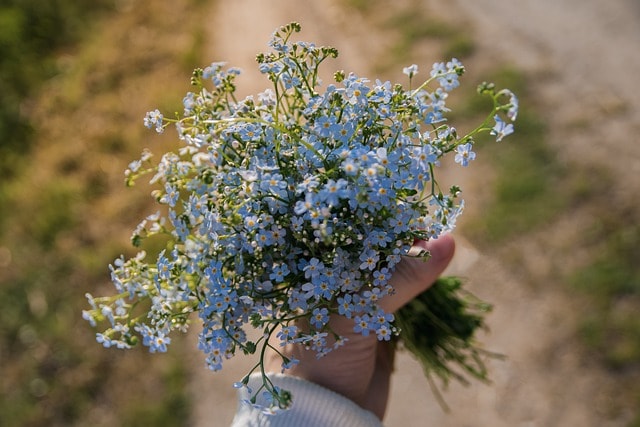
Flowers for Other Occasions
Different events call for varied flower arrangements. Here’s a quick guide to help you decide how many flowers to include:
A Dozen Roses
A classic dozen roses are perfect for expressing love or appreciation. Add greenery for a polished presentation or combine with filler flowers for a softer arrangement.
Garden Roses
These fragrant blooms come in larger sizes and usually require 10–12 stems for a small bouquet or 20–25 stems for more elaborate styles.
Hydrangea Bouquets
Hydrangeas create luscious arrangements with relatively few flowers. Use 5–7 stems for a small arrangement or 10–12 stems for a larger display.
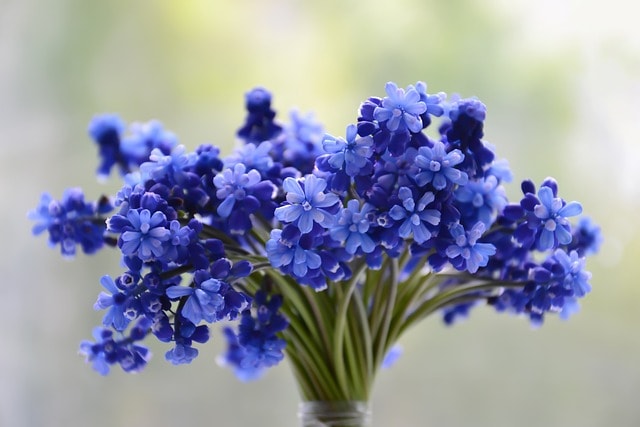
Factors Affecting Flower Quantities
Several factors can influence how many flowers should go into your arrangement:
Type of Flowers
-
Larger Blooms: Hydrangeas, peonies, and protea cover more space with fewer stems.
-
Smaller Blooms: Ranunculus, roses, and daisies require more stems to fill bouquets.
Venue and Setting Size
A smaller venue or intimate gathering may only call for small arrangements or fewer flowers, whereas larger spaces or grand events provide more room for elaborate bouquets.
Personal Preference
Your aesthetic plays a key role. Do you prefer minimalist arrangements with clean lines and fewer blooms, or do you enjoy bold, overflowing bouquets?
Tips for DIY Flower Arrangements
Designing your bouquet at home? Here’s how to get it right:
-
Use a Stem Calculator: Several online tools can help you estimate how many flowers you’ll need for specific arrangements.
-
Prep Wisely: Remove leaves from the stems and keep flowers hydrated before use to ensure they stay fresh.
-
Seek Guidance: A quick consultation with a florist can help clarify questions about flower types and quantities.
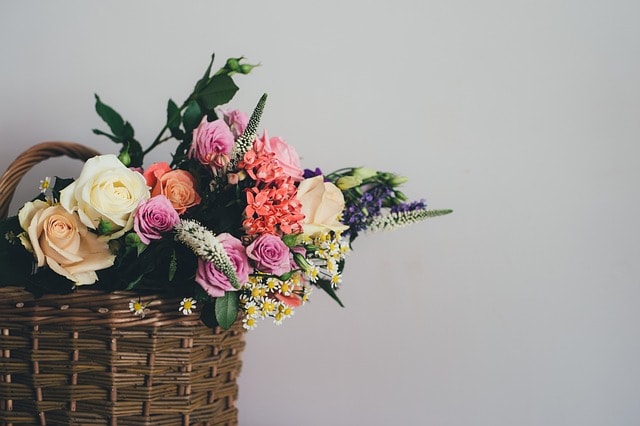
Finalizing Your Flower Order
For well-rounded floral perfection, take these steps before submitting your order:
-
Plan Your Design: Decide on the bouquet’s shape, style, and size.
-
Consider Quantities: Calculate quantities for each floral arrangement you’ll need.
-
Stay Organized: Use printable worksheets or track your favorite flower combinations for future reference.
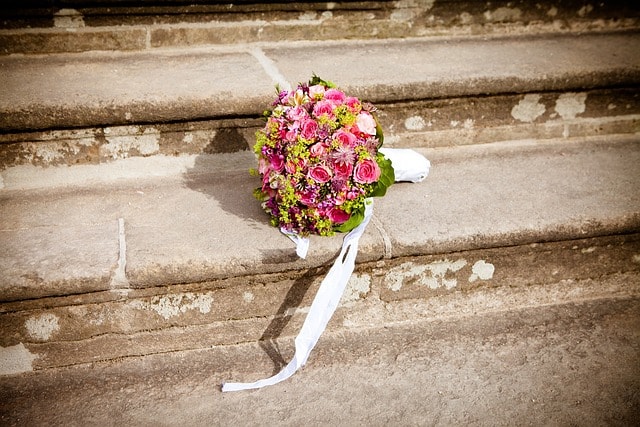
Bring Beauty to Life with the Right Number of Flowers
Flowers are a universal way to express emotion, and knowing how many flowers to include ensures your bouquet sends the perfect message. Whether you're assembling a mixed bouquet for a wedding or creating small arrangements for everyday joy, planning makes all the difference.
Looking for expert advice? Visit your local florist or explore online services to simplify the process. Now go on—design a bouquet that’s as unique as its recipient!
Flower Resources
Finding the right resources can make flower selection and arrangement effortless. Here are some helpful links to guide you in your floral endeavors:
-
Flower Meanings and Symbolism: The Flower Expert - Understand the meanings behind different flowers to create arrangements that convey the perfect sentiment.
-
Seasonal Flower Guide: Better Homes & Gardens - Learn which flowers are in season to ensure fresh and vibrant blooms for every occasion.
-
DIY Flower Arrangements: Martha Stewart - Explore creative DIY ideas for arranging flowers at home with step-by-step tutorials.
-
Local Florist Listings: FTD Florist Directory - Find expert florists near you for personalized advice and ready-made designs.
-
Tips for Flower Care: ProFlowers Care Guide - Get detailed tips on how to keep your arrangements fresh and long-lasting.
-
Floral Design Inspiration: Pinterest - Discover a wide variety of floral design ideas and inspiration for any style or occasion.
-
Wildflower Identification: Wildflower Search - Identify local wildflowers and incorporate them into your arrangements for a natural touch.
-
Eco-Friendly Floristry: Slow Flowers - Learn about sustainable floral practices and find florists who prioritize eco-friendly creations.
-
Flower Photography Tips: Photography Life - Get expert advice on capturing stunning photos of your floral arrangements.
-
Flower Delivery Services: BloomNation - Browse and order unique, handcrafted flower arrangements delivered by florists in your area.
Make the most of these resources to bring your floral projects to life and enjoy the beauty they add to your space.

